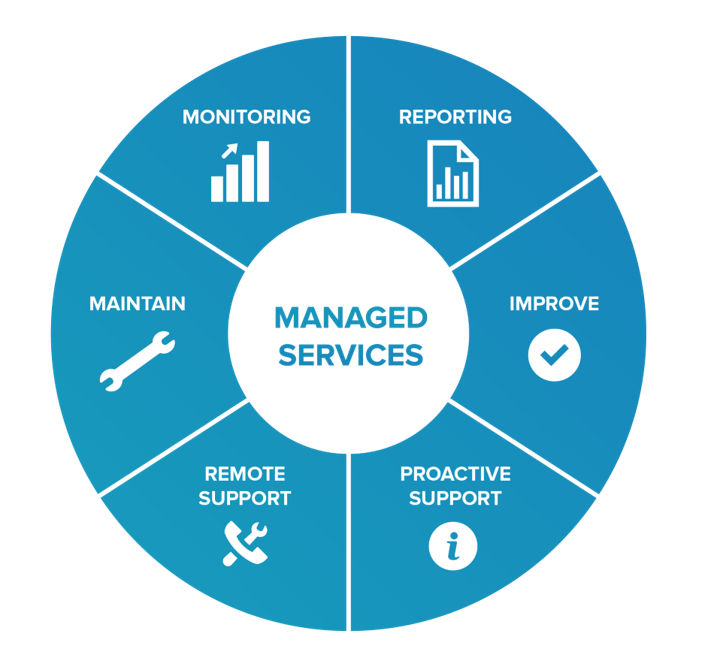How to Choose a Managed IT Provider: Strategic Guide for 2025
Technology is no longer just a support function—it’s a strategic driver of growth. In today’s fast-changing digital landscape, choosing the right Managed IT Service Provider (MSP) can mean the difference between seamless scalability and costly disruption.
But with countless providers in the market, how do you separate partners who drive your success from vendors who profit from your problems? This guide explores when to consider managed services, what to look for in an MSP, common pitfalls to avoid, and whether co-managed or fully managed IT is right for your business.
When Does a Business Need a Managed IT Provider?
Partnering with an MSP isn’t just about outsourcing—it’s about timing. Most organizations turn to managed services in one of these three scenarios:
1. Rapid Growth Outpaces IT Capacity
If your IT team is constantly firefighting instead of planning strategically, it’s time to bring in help. MSPs provide scalable support, proactive monitoring, and structured processes that keep pace with growth.
Warning signs include: frequent outages, security lapses, and overwhelmed IT staff.
2. Lack of Specialized Expertise
Sometimes you don’t need full outsourcing—you just need niche skills. MSPs give you fractional access to experts in areas like cybersecurity, cloud, or ERP systems without hiring full-time staff.
3. Desire for Predictable Costs & Reduced Risk
MSPs typically offer fixed-fee contracts, bundling monitoring, patching, support, and security into a predictable monthly cost—helping you budget and avoid costly downtime.
What Services Do MSPs Provide?
A modern managed IT provider should deliver more than helpdesk support. Core services often include:
- Remote Monitoring & Management of infrastructure
- Helpdesk support for day-to-day issues
- Patch management & updates to stay secure
- Cybersecurity services (firewalls, MFA, threat detection)
- Backup & disaster recovery for business continuity
- Strategic IT consulting (vCIO) to guide long-term strategy
Key Criteria for Choosing an MSP
When evaluating providers, keep these essentials in mind:
- Industry Expertise – Choose an MSP with experience in your sector and technology stack. Ask for case studies and certifications.
- Scalability & Flexibility – Can they adapt as your business grows or your needs change?
- Response Times & SLAs – Review service-level guarantees for support and escalation.
- Proactive Support – Look for providers who prevent issues, not just fix them.
- Clear Onboarding & Offboarding – Ensure they provide thorough documentation and smooth transitions.
Common Mistakes to Avoid
Too many businesses make avoidable errors when selecting an MSP. Watch out for these pitfalls:
- Choosing based on price alone – Cheap providers often lack depth or security.
- Assuming “all-inclusive” means unlimited – Always ask what’s excluded.
- Skipping cultural fit – An MSP should feel like part of your team.
- Confusing IT management with information systems management – Big projects like ERP rollouts require more than basic IT support.
- Overlooking references – Always check how they’ve handled real-world challenges.
Co-Managed vs Fully Managed IT
- Co-Managed IT – Ideal if you have an in-house team but need extra bandwidth or specialized expertise. Great for mid-sized businesses (100–500 employees).
- Fully Managed IT – Best for small businesses or startups without internal IT. You get a full team for less than the cost of a single hire.
Questions to Ask a Potential MSP
- What industries do you specialize in?
- How do you handle cybersecurity and compliance?
- What’s included in your monthly fee—and what isn’t?
- How do you measure client satisfaction?
- What is your process for onboarding and offboarding?
Why Local Matters: The Canadian Advantage
For Canadian businesses, partnering with a Canadian MSP ensures:
- Compliance with Canadian privacy laws (PIPEDA, provincial health acts).
- Data sovereignty – keeping sensitive information within Canada.
- Cultural alignment – working in the same time zone with teams who understand Canadian business practices.
Final Thoughts: MSPs as Strategic Partners
The right MSP is more than a service provider—they’re a strategic partner who helps your business innovate, stay secure, and scale with confidence. Whether you’re supplementing your IT team or outsourcing fully, the decision you make today will shape your company’s resilience for years to come.
“A satisfied customer is the best business strategy of all.” – Michael LeBoeuf
The RoundAssist Difference
At RoundAssist, we see ourselves as strategic partners, not just IT vendors. With 100% Canadian operations and a co-managed approach, we ensure you retain control while benefiting from enterprise-grade expertise.
Our RoundAssist platform provides transparency, real-time visibility, and streamlined IT operations—empowering your team while we handle the complexity.
👉 Ready to align your IT with your business strategy? Click the button below to learn how we can help your organization grow securely and confidently.


